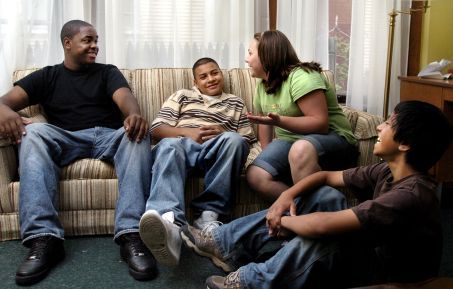 “Many teens are more comfortable getting to know other teens through a structured activity.”
“Many teens are more comfortable getting to know other teens through a structured activity.”If your teen struggles with a mental illness, social situations can be challenging. Some teens will continue to resist relationships even though they have the opportunity. They may find it draining to be around other people and prefer to spend time alone. Similarly, they may not want the responsibility of maintaining a friendship, afraid they won’t have the energy to go out with friends when the opportunity arises. Try to be patient with your teen and consider any interaction at all with peers to be progress.
If your teen has lost ground socially, conversation may be difficult and draining. Suggest they challenge their conversational skills by learning one thing about each person they meet. Most people’s favorite conversational subject is themselves, after all.
Teens who have withdrawn for a time often take comfort in the safety of their bedrooms. They enjoy being on the Internet, playing video games, and watching television. Tell your teen that it’s okay to still do these things, but limit the number of hours per day. Insist upon your teen participating in some outside activities. Here are some places to start:
School
If you have been driving your teen to and from school, let them walk at least part of the way. The exercise and independence will build self-esteem. Your teen may even find someone to walk with. Beyond that, joining an after-school activity will make school more meaningful and provide some positive high school memories after graduation. Most important, your teen will have friends.
Keep in mind that some courses are naturally more social than others: art, band, choir, drama, newspaper, yearbook, and others. A course like this can provide a quick social network. Many teens are more comfortable getting to know other teens through a structured activity.
Part-Time Work
A part-time job can increase a teen’s social confidence, giving him a sense of purpose and belonging. Receiving a paycheck will make him feel valued. If he deals with customers, he will become more self-assured when dealing with the public and interacting with coworkers. If he cannot get a job, have him try volunteering.
Volunteering
Volunteering is especially helpful to the teen who could use a little more empathy. Doing something for nothing will help them mature more than anything. If your teen lacks confidence, volunteering is the next best thing to a part-time job, and it’s much easier to find volunteering opportunities. If your teen needs friends, steer him or her toward volunteer opportunities that involve other teens.
This is Part III in a series on teen maturity. Read the others:
Helping Your Teen Mature (Part I)
Getting Through to Your Irrational Teen (Part II)
Six Strategies for Helping Your Teen Mature (Part IV)
Five Steps to Increasing Teen Maturity (Part V)
 “You can help your teen by distinguishing the truth from self-defeating statements.”
“You can help your teen by distinguishing the truth from self-defeating statements.”